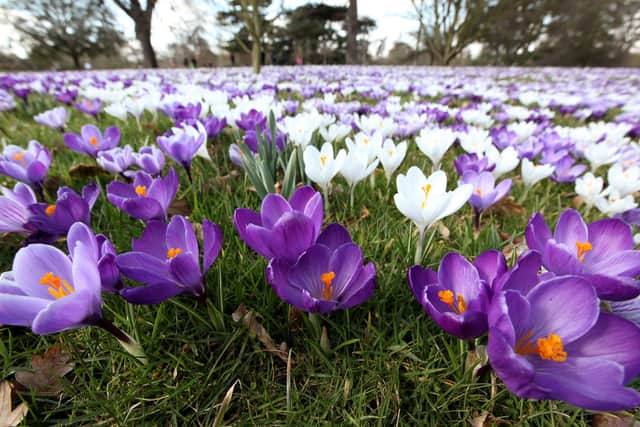Climate change: Flowering of plants a month early in UK is a sign of how dramatically the natural world is changing – Scotsman comment
The slow but steady rise in temperatures has not quite been quick enough for people, in the UK at least, to really feel the difference. However, evidence from tree rings, sedimentary rocks and other ‘natural thermometers’ shows the current pace of change is happening many times faster than during natural warming events such as the end of the last ice age.
And this is having a dramatic impact on the natural world.
According to a study led by Cambridge University academics, the average first flowering date has advanced by a month across the UK in recent decades. The team came to this conclusion after analysing an extraordinary database of more than 400,000 observations of 406 plant species, from Shetland to the Channel Islands, going back to 1753.
Advertisement
Hide AdAdvertisement
Hide AdProfessor Ulf Buntgen, who led the study, described their findings as “truly alarming”. For not only can a late frost kill plants which flower early, there is a greater risk: ecological mismatch.
“Plants, insects, birds and other wildlife have co-evolved to a point that they're synchronised in their development stages,” he said. "A certain plant flowers, it attracts a particular type of insect, which attracts a particular type of bird, and so on. But if one component responds faster than the others, there's a risk that they'll be out of sync, which can lead species to collapse if they can't adapt quickly enough.”
The effects can be devastating. For example, birds like blue tits, great tits and pied flycatchers feed their chicks on caterpillars, but these have been emerging earlier and earlier, so their peak populations no longer coincide with the arrival of the next generation of birds. In the Netherlands, pied flycatcher populations fell by more than 90 per cent over just two decades.


Humans are more adaptable than most species, but we will pay a heavy price if we allow a widespread collapse of the natural world.
And, as Astronomer Royal Professor Martin Rees, wrote in The Scotsman ahead of the COP26 climate summit, humans are at risk of turning into a very different kind of animal, one not known for its skills of survival or observation – “the proverbial boiling frog, content in a warming tank until it’s too late”.
A message from the Editor:
Thank you for reading this article. We're more reliant on your support than ever as the shift in consumer habits brought about by coronavirus impacts our advertisers.
If you haven't already, please consider supporting our trusted, fact-checked journalism by taking out a digital subscription.
Comments
Want to join the conversation? Please or to comment on this article.
